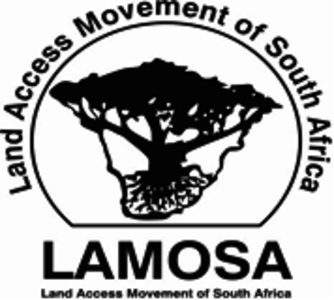To: Department of Minerals Resources (DMR) Minister, Mosebenzi Joseph Zwane
Scrap the MPRDA Act of 2002 and its amendments

- Develop mining law which recognises, respects and promotes communities' rights, especially the affected land users and there must be meaningful consultation and consent given by the communities.
- Prioritise meaningful engagements with communities and give proper support
- Address the legacy of 1913 and make new mining laws subject to Interim Protection of Informal Land Rights Act of 1998 ( IPILRA)
- Recognise the history of dispossession and what it should mean for restoration.
- Enable communities to negotiate their fate in terms of benefits, rent, royalties, ownership shares and equity, compensation for loss of livelihoods and income.
- Recognise customary land rights and ensure consultation and consent of people living on communal land
- Legislate mining laws that will foster restoration and wealth redistribution, taking into consideration those who bear the brunt of the social and environmental impact of mining.
- Prioritise meaningful engagements with communities and give proper support
- Address the legacy of 1913 and make new mining laws subject to Interim Protection of Informal Land Rights Act of 1998 ( IPILRA)
- Recognise the history of dispossession and what it should mean for restoration.
- Enable communities to negotiate their fate in terms of benefits, rent, royalties, ownership shares and equity, compensation for loss of livelihoods and income.
- Recognise customary land rights and ensure consultation and consent of people living on communal land
- Legislate mining laws that will foster restoration and wealth redistribution, taking into consideration those who bear the brunt of the social and environmental impact of mining.
Why is this important?
The MPRDA of 2002, even though it was later amended, still does not afford any opportunity for consultation with and consent by communities as prescribed in Free Prior and Informed Consent(FPIC). This infringes on the rights of communities to influence decisions about old and new mining in their areas. It contains limited rights on community consultations (It only addressed mitigation of environmental impacts). Communities are still not given space to negotiate the contents of the old and new rights.
The MPRDA of 2002 also separates the surface rights from the mineral rights, and converted old order rights of mining companies to mine on communal land to new ones without consulting communities to listen to their views.
The Act states that the conversion is automatically granted for as long as the company can show that it has a Black Economic Empowerment (BEE) partner and that the Municipality has agreed to a social labour plan providing for housing and local economic development plans. Once this has been checked, new mining can happen without any consent by the community. All that is required under section 5(a) is a 21 days written notice before mining commences. This cannot be right.
The MPRDA of 2002 also separates the surface rights from the mineral rights, and converted old order rights of mining companies to mine on communal land to new ones without consulting communities to listen to their views.
The Act states that the conversion is automatically granted for as long as the company can show that it has a Black Economic Empowerment (BEE) partner and that the Municipality has agreed to a social labour plan providing for housing and local economic development plans. Once this has been checked, new mining can happen without any consent by the community. All that is required under section 5(a) is a 21 days written notice before mining commences. This cannot be right.
.png)